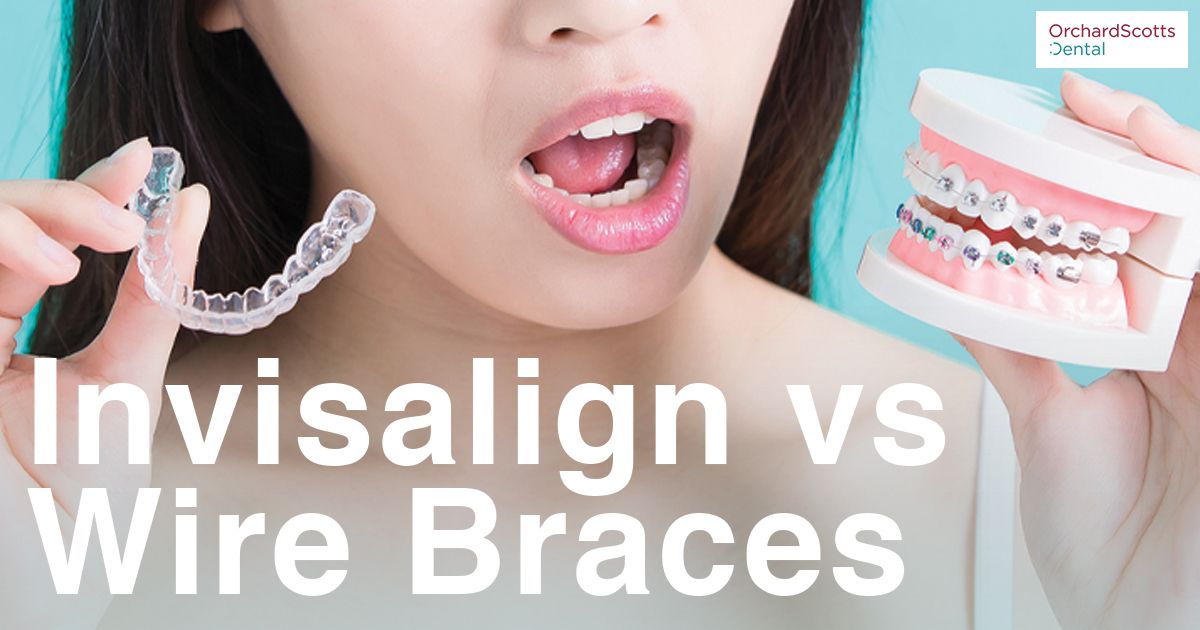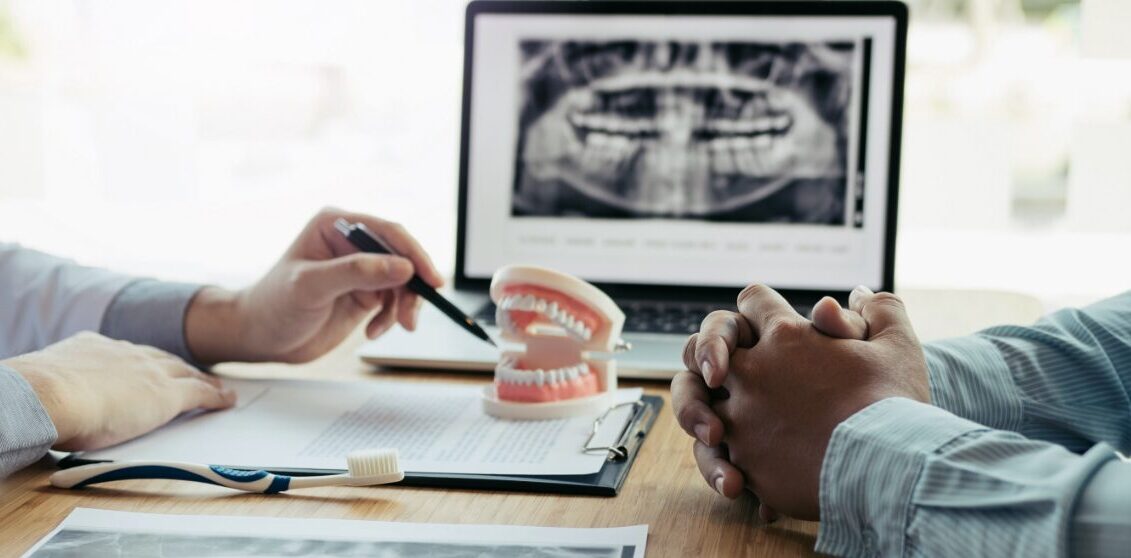
With 1 out of 5 Americans feeling anxiety and an unsettling impact on their mental wellbeing due to the condition of their teeth, the surge in the desire to receive corrective treatment is understandable. When considering options for teeth alignment, people often have queries related to the cost-effectiveness in terms of value provided by the various treatments available in the market.
However, what is more uncommonly known is that orthodontic treatments have a lasting impact on the overall periodontal health of the mouth post-procedure, which potential patients tend to overlook due to a lack of awareness. The level of discomfort one can expect from any orthodontic treatment, paired with the challenge of choosing the right dental solution can make the task extremely daunting.
With options like wire braces and the Invisalign treatment competing head to head, there are intrinsic mechanisms to each that must be ascertained over their blatant visual differences. A cross sectional study on gingival parameters and patient satisfaction during treatment was conducted to highlight the potential pros and cons of braces and Invisalign treatments.
In a 6-month long scientific study conducted on 139 orthodontic patients; aged between 11 to 62 years, subjects were screened for sulcus bleeding and plaque. All subjects were provided with the same oral hygiene conditions, while all patients underwent the same professional preventative hygiene treatment.
In clinical examinations, it was reported that Invisalign served as a better option to align teeth, with higher patient satisfaction scores, and lower gingival inflammation. In contrast, patients with braces suffered from increased plaque accumulation with a higher susceptibility to decalcifications and white spot lesions.
Invisalign or Braces – Which treatment is better for you?
It is important to note the structural differences of both treatments prior to settling with one. Braces are considered an invasive treatment, consisting of metal or porcelain brackets being glued to the teeth, with titanium or stainless steel wires pulling at them, creating a tightening and aligning effect.
Invisalign, on the other hand, comprises of a sequence of clear liners; custom made to snuggly fit each mouth. The ergonomics of these cause a movement in the teeth of about ¼-millimeter, in the predetermined direction. With the aid of computer simulations, specialists decide the design and function of each aligner, bolstering the pattern of movement intended.
Costs
Patients of braces can expect to be set back anywhere between $1800-6000 while complicated cases can cost up to $10,000. Invisalign’s clear liners are priced at $3500-8000 and can be performed by an orthodontist, or a Dental GP with extensive experience.
This higher cost in comparison to braces is offset by the multiple benefits and conveniences it provides to the patient. Invisalign reduces the risk of periodontal decay and gingival inflammation, resulting in better oral conditions for the patients. This benefit extends from the removable design of the aligner tray.
Maintenance & Cleaning
The brackets and wires used in traditional braces make the cleaning process difficult while its permanently glued nature requires additional cleaning equipment, such as special toothbrushes and water flossers to aid in the removal of debris and food particles that may stick to the wires. Invisalign’s removable features allow more flexibility in keeping an effective and simple oral hygiene routine.
Poor cleaning habits can lead to decalcification, decay, cavities, and gum disorders in the future. Maintaining hygiene with Invisalign is fairly easy and straightforward; with you having to remove the aligners when eating or drinking anything other than water, before bed and when brushing or flossing to give you easier access to your teeth. Caring for your Invisalign aligners typically requires you to keep your trays clean and sanitised and changing your aligners when scheduled.
Durability & Reliability
While braces may seem sturdy, they can prove to be fragile when biting into something hard. The glue may give way if not applied with care or the wire could snap, requiring an emergency visit to the dentist.
Cases better suited for braces are forgetful individuals or younger children prone to misplacing things – given the removable nature of Invisalign. Braces are also suitable for patients requiring highly complex and technical teeth repositions or bite restructures. However, they have been known to cause slight discomfort, with cuts, bleeds, soreness, and even excruciating pain as reported by some patients.
Flexibility of Use
Invisalign works in a way that provides flexibility of use, with no nicks and cuts. It is better suited for busy lifestyles, especially for teens and mature patients and even athletes. However, it does not cater to patients with severe back-tooth bite issues, bridgework, and other similar problems. Compliant patients who wear Invisalign for at least 20 continuous hours a day tend to see faster results; however, the force of both braces and Invisalign determines the speed of the treatment’s progress.
The Verdict
Invisalign reduces the possibility of oral health related issues which may occur with a mismanaged hygiene routine owing to the inflexible nature of braces. While both dental treatments are considered excellent to treat misaligned teeth, for people looking for a more comfortable solution with an easier oral hygiene regimen and maximum benefits – Invisalign proves to be the better choice.
The chances of tooth decay with traditional procedures are higher, making the cost saved on acquiring the procedure ineffective in the long run; the resulting orthodontic conditions may require even costlier treatments to counteract the damage.
Paying attention to your dental habits and arranging regular appointments with a trusted dentist can extend the life of your teeth. At Orchard Scotts Dental; an aesthetic dental clinic, our aesthetic dentists have helped patients achieve the beautiful smile they always aspired for. We specialize in non-invasive treatments with minimal tooth extractions.


